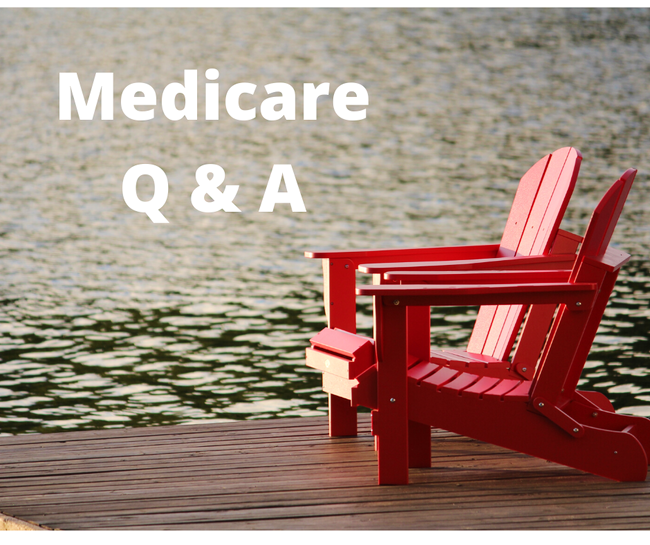COLUMN: How a little research can help Medicare recipients save on prescription drugs – Salem Reporter

Jim Sellers, former Oregon journalist and state agency employee, writes a regular column to help thousands in Salem deal with the confusing world of Medicare and federal benefits. He’s available to answer your questions.
It was a costly problem with a straightforward explanation. The Medicare beneficiary had Medicare retiree insurance through Oregon’s Public Employee Retirement System, and one prescription drug was going to cost hundreds of dollars.
The individual made an appointment with a Senior Health Insurance Benefits Assistance (SHIBA) counselor to ask how the drug’s cost could be reduced. They made a phone call to the insurance company’s pharmacy department and learned the problem: The prescribed drug was not in the insurance plan’s drug formulary, meaning the insurance didn’t cover it.
The company representative provided names of three drugs that the insurance would cover so that the beneficiary could ask the doctor whether any of them could be prescribed for the medical condition. The SHIBA counselor also described how the doctor could seek an exception to the insurance formulary if none of the drug alternatives appeared satisfactory.
And if none of that worked, the Medicare beneficiary could check whether a reduced price could be obtained with the free ArrayRxCard, formerly the Oregon Prescription Drug Program. The beneficiary’s retirement income was too high to qualify for NeedyMeds.org (800-503-6897), where people with limited incomes can learn about drug manufacturers’ patient-assistance programs.
If you would like to make a SHIBA appointment, or to ask a question to be answered here, please see the end of this column.
A long-time friend pays nothing for Medicare insurance that gives her a gym membership. I pay more than $100 for my Medicare insurance and have to pay my own gym membership. What gives?
Almost certainly your friend has Medicare Advantage insurance and you have a Medicare supplement (Medigap) policy. Most Medicare Advantage insurance plans offer a fitness benefit, although the costs (if any) to the insured and the fitness centers that are covered may differ.
By contrast, Medigap supplemental insurance will cover only if Medicare pays first, and Medicare pays nothing toward fitness benefits. If it makes you feel any better, with her insurance your friend has co-pays for many medical services while you presumably have none after you’ve paid Medicare’s annual Part B deductible ($231 in 2022).
The drug donut hole used to be a big deal, but I don’t hear much about it anymore. Did it go away?
The “donut hole,” known formally as the Coverage Gap, didn’t go away. But over a period of years it did become significantly smaller. It still poses a financial challenge for people with costly prescription drugs. In 2022 one falls into the donut hole after the Medicare beneficiary and the insurance company together have spent $4,430 on drugs.
To see a color graphic showing how this works, see page 29 of the 2022 Oregon Guide to Medicare Insurance Plans. After spending thousands more, the Medicare beneficiary comes out of the donut hole and pays the greater of 5% of the cost of the drug or $3.95 for a generic and $9.85 for a brand-name drug. For a deep dive into the subject, see the Part D donut hole narrative on the Medicare Interactive website.
Someone who falls into the donut hole might profit from checking whether the drug is available less expensively through the ArrayRxCard (800-913-4146), formerly the Oregon Prescription Drug Program, or by using a patient-assistance program through NeedyMeds.org (800-503-6897). A beneficiary with a limited income might also check eligibility for Medicare Extra Help with drug costs.
Does it make any difference what pharmacy I use?
It could. Insurance companies contract with pharmacies, which they divide into preferred pharmacies and standard pharmacies. Often (but not always) getting your prescriptions from a preferred pharmacy will be less expensive. The insurer should be able to tell you, or you can shop pharmacies by showing them your list of prescription drugs (names, dosages and frequency).
Jim Sellers of Salem is a certified Medicare counselor with the Senior Health Insurance Benefits Assistance (SHIBA) program. To ask a question to be answered in this column, e-mail [email protected] To schedule a free SHIBA phone appointment with a volunteer Medicare counselor, call 800-722-4134.
STORY TIP OR IDEA? Send an email to Salem Reporter’s news team: [email protected]
JUST THE FACTS, FOR SALEM – We report on your community with care and depth, fairness and accuracy. Get local news that matters to you. Subscribe to Salem Reporter starting at $5 a month. Click I want to subscribe!




